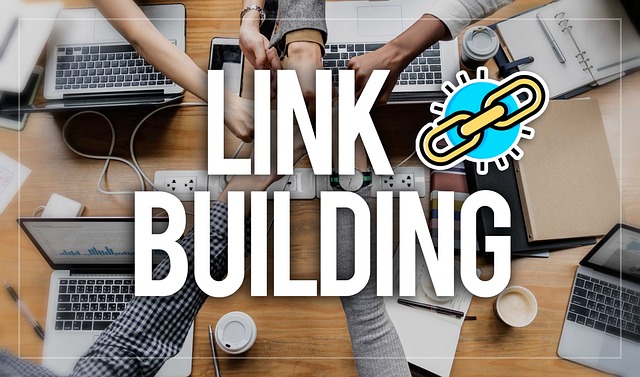Link building is a strategic SEO process focused on acquiring high-quality backlinks from reputable sources. It boosts online visibility and credibility by fostering valuable industry connections. Effective strategies include creating engaging content, guest blogging, influencer outreach, and emphasizing quality over quantity. High-quality backlinks signal search engines that your content is valuable, impacting rankings and driving organic traffic. Ethical link building aligns with search engine guidelines, while Black Hat methods are penalized. Measuring success through tools like Google Search Console and SEO KPIs ensures informed adjustments to strategies.
“Unleash your website’s potential with powerful Link Building Services, a strategic art that boosts online visibility. This comprehensive guide dives into the essentials of link building, offering insights on effective strategies and types of links that matter in SEO. Discover how quality backlinks enhance your search rankings and attract the right audience. We also demystify ethical practices versus Black Hat techniques, providing tools to measure success. By the end, you’ll grasp the importance of Link Building as a game-changer in today’s digital landscape.”
Understanding Link Building Services: The Basics

Link building is a strategic process aimed at acquiring backlinks from reputable and relevant websites, an essential component of search engine optimization (SEO). These backlinks serve as digital votes of confidence, signaling to search engines that a website offers valuable content worthy of reference. The primary goal is to establish high-quality connections between your site and others in your industry or niche, thereby improving its online visibility and credibility.
Effective link building services involve identifying potential partners, creating engaging content that naturally attracts links, and employing various techniques such as guest blogging, influencer outreach, and resource page submissions. It’s crucial to focus on building relationships and creating value rather than solely chasing links, ensuring a sustainable and healthy backlink profile that can withstand the evolving algorithms of search engines.
Strategies for Effective Link Acquisition

Building high-quality backlinks is an art and science, requiring a strategic approach for effective link acquisition. One powerful strategy is creating valuable content that naturally attracts links from other websites. This could involve in-depth research, unique insights, or providing solutions to common problems within your industry. When your content stands out as informative and engaging, it becomes more likely to be shared and linked to by relevant authorities.
Another key tactic is reaching out to influencers and industry peers for collaboration opportunities. Guest blogging on established websites can expose your brand to a new audience while earning valuable backlinks. Additionally, building relationships with these influencers can lead to organic mentions and links over time. Remember, quality always trumps quantity when it comes to link building—one powerful link from a reputable source can have a significant impact on your SEO journey.
Types of Links and Their Impact on SEO

Link building is a strategic process that involves acquiring backlinks from other websites, which play a pivotal role in search engine optimization (SEO). These backlinks are essentially references or hyperlinks from one site to another and carry significant weight in how search engines rank web pages. When high-quality links point to your website, it signals to search engines like Google that your content is valuable and trustworthy, leading to improved visibility and higher search rankings.
There are several types of links that can impact SEO, each with its own advantages:
1. Do-follow Links: These are the most desirable as they allow search engine bots to crawl and index the linked page. They pass on link equity, contributing to a site’s authority.
2. No-follow Links: Introduced to combat spam, these links don’t carry any link equity but still provide some benefit by indicating to search engines that the content is worth mentioning.
3. Internal Links: These are links within a website connecting different pages. They help distribute link equity and guide users through a site’s structure, enhancing overall SEO performance.
Benefits of Quality Backlinks for Online Visibility

High-quality backlinks are a powerful asset in the realm of search engine optimization (SEO) and play a pivotal role in enhancing a website’s online visibility. These links, obtained through effective link building strategies, act as digital bridges between your site and potential users. When reputable and relevant websites link to yours, it signals to search engines that your content is valuable and trustworthy. This endorsement boosts your site’s authority and credibility, which directly impacts its ranking in search results.
In today’s competitive online landscape, search engines like Google use backlinks as a key factor in determining the relevance and quality of a website. The more high-quality backlinks you have from diverse sources, the better your chances of securing a higher search engine position. This increased visibility can drive organic traffic to your site, leading to more potential customers and wider reach. Quality backlinks also help in establishing your brand’s reputation, as they contribute to a positive online image and a strong digital footprint.
Ethical vs. Black Hat Link Building Practices

In the world of Link Building, a practice considered ethical is one that aligns with search engine guidelines and prioritizes quality over quantity. This approach involves acquiring backlinks from reputable and relevant sources, such as industry-leading websites, high-authority blogs, and influential figures within your niche. These links not only boost your site’s credibility but also provide genuine value to users by directing them to relevant content.
On the other hand, Black Hat Link Building employs aggressive and often manipulative tactics to secure backlinks. This includes buying links, engaging in link farms, or using automated tools to generate low-quality links. While these methods might offer a temporary boost in rankings, they are frowned upon by search engines like Google, which actively work to penalize sites employing such practices. In the long run, Black Hat Link Building can lead to severe consequences, including site deindexation and a significant drop in search engine visibility.
Measuring Success: Tools and Key Performance Indicators

Measuring success in link building is crucial for understanding the effectiveness of your SEO strategy. There are various tools available to track backlinks, such as Google Search Console, Ahrefs, SEMrush, and Moz. These tools provide insights into the number of backlinks, their quality, and where they originate from. Key Performance Indicators (KPIs) include domain authority, page rank, click-through rates, and referral traffic. Domain authority, in particular, is a strong indicator of a website’s overall trustworthiness and influence within its industry, making it an essential metric for gauging link building success.
Beyond these technical metrics, consider the strategic goals of your link building efforts. Are backlinks driving more organic traffic to your site? Are they improving your search engine rankings for targeted keywords? Monitoring conversions and user engagement can also offer valuable feedback on the quality of acquired links. By combining quantitative data from SEO tools with qualitative insights from website analytics, you can gain a comprehensive understanding of your link building campaign’s performance and make informed adjustments to future strategies.
